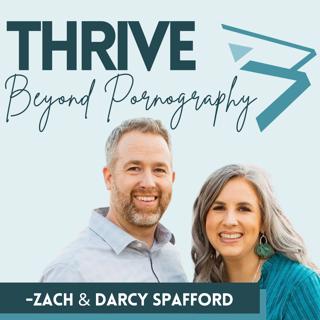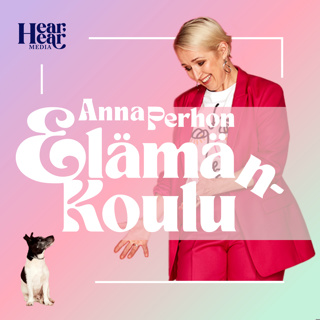
Accountability Partners
Accountability partners There is often, in marriages and in the addiction model of pornography struggles, a question of, “what about my accountability partner?” Often, we ask this because we are seeking to have someone who will struggle through this with us and help us in those intense moments where we are believing the lies our brain tells us about how we don’t want to feel bad and pornography will help solve that immediate, acute struggle. As I was talking about this with a client this week, I urged him to use the plan ahead protocol that we teach to our individual coaching clients and in our membership, as well as, being radically honest with the people around him. In particular his mother. His response to me prompted this podcast. He said, “my mom struggled through my dad’s drug addictions as his accountability partner and isn’t really willing to do that for me. She said, I need to do this one on my own.” Her story was one of being crushed by the overwhelming burden of being the person who is supposed to help someone do something, and having absolutely no control or influence over that person’s behavior. She didn’t want to be “responsible” for her son the way she had been “responsible” for her husband all those years. What is the difference between being or having an “accountability partner” and being accountable to yourself while being open about our struggles? The traditional role of an accountability partner the way it was explained to me and the way I interpreted it, was that they were a person you checked in with regularly, they measured your progress, you called them when there was a crisis and they were the person who was going to talk you down off the ledge, convince you to stop, try to interrupt your model and get you back on the straight and narrow path. Sounds good right? Darcy, what do you think about this idea? Then there is the idea of partnering with yourself and if you desire one other person to help you just be honest out loud with what is going on for you. This is the person you are going to tell what is happening for you, while simultaneously expecting nothing from them. They aren’t there to talk you off the ledge, help you stop, or distract you from your problems. Really, what we are talking about is a vulnerability partner. Being willing to say what is really going on with you. Talk openly about your wants, struggles, feelings, and joys
28 Kesä 202123min

Radical Honesty
Radical honesty. Not lying to self about what pornography does for you - I don’t want to feel frustrated the rest of the day – this is where it starts - Now’s a good time, - After I turn to pornography I won’t feel frustrated - Turning to pornography will help me forget - Being aware that your brain is trying to help you feel good now, not feel good about yourself. Or in the future – your brain is always in the moment Being upfront about your pornography use. - Plan ahead, - Confess ahead - Stop acting like we don’t know the pattern - Owning the decision o Don’t want to believe the things that you would believe about yourself if you were actively, consciously choosing it, rather than being caught off guard or a victim, or addicted,
21 Kesä 202130min

Fear Not When talking about tough subjects
Fear Not Is it going to destroy your life if you drink a cup of coffee? What if you have sex outside of marriage? How about if you don’t eat meat sparingly and fruits and vegetables in the season thereof? We think the more that we oppose something, talk about how bad something is, create and perpetuate fear around it, the more we will be able to keep people, including ourselves, from doing it. So, we often tell stories of designed to highlight the absolute worst thing that could happen to a person should they engage in a particular behavior that is contrary to the gospel. When it comes to things like pornography, modesty, alcohol, or really anything we are striving to keep our kids and family members away from. We tell the stories of the one person we know who did, you name the sin, and lost everything. So to help us stop doing that we are going to tap into 2 timothy ch1 v 7 to talk about how we can stop stigmatizing what we find morally wrong and start living more fully within the gospel that heavenly Father has given us. 7 For God hath not given us the spirit of https://www.churchofjesuschrist.org/#note7a (afear); but of https://www.churchofjesuschrist.org/#note7b (bpower), and of https://www.churchofjesuschrist.org/#note7c (clove), and of a sound mind. Let’s start with power. I personally interpret this as agency. We have the power to chose what it is that we feel is right. Oftentimes, the fear side of things tells us that we are addicted, trapped, stuck. When we talk about our struggles this way we disempower ourselves and others. To take back power, we must accept our agency. Take responsibility for our choices. Stop saying “can’t” should, shouldn’t. Let’s move to love Charity and love go hand in hand, but they also are complimented by empathy and understanding. I’ve yet to meet anyone who didn’t prefer love to a story of doom and gloom about their behavior. Just because we don’t agree with a behavior, doesn’t mean that telling horror stories is going to keep people from doing it. Last – sound mind. This is probably one of my favorite things within the gospel and often it gets short changed because we like hearing dramatic stories of revelations and hero stories of great triumph. But a sound mind, to me means that we just need to use our brains and the logic and gospel principles that God has given us. We can figure things out. we are pretty smart. The brother of jared comes to mind. He was sent back to come up with a solution. Only the parts we aren’t able to do, like lighting the stones, are where the lord wants to intervene because he wants us to grow. Shame cannot survive being spoken, it cannot survive empathy, brene brown.
14 Kesä 202122min

Bonus Episode - Ben Pugh and I talk about parenting and pornography
Listen to my conversation with Ben, an amazing coach for parents. You can find out more about him and his amazing work at benpughcoaching.com
9 Kesä 202146min

Healthy Sexuality
Healthy sexuality is not a fear based avoidance of difficult sexual topics. We need to teach our children swimming skills - Agency - Repentance - Atonement We need to model the skills of healthy sexuality with our kids. Want to work with Zach or Darcy. Set up a consult at zachspafford.com/workwithme
7 Kesä 202120min

Three Minute Drill
Let’s talk about what coaching is. The kind of coaching that I do is called causal coaching. This work seeks to find the underlying issue that is creating the results in your life. This means that when someone comes to me and says, “I’m looking to eliminate a pornography habit from my life.” I seek to understand what is creating that habit. Many times that habit is a result of a lack of emotional skills. In my own life, I had a lack of understanding about what was driving my behavior and a lack of understanding on how to deal with what was driving my behavior. So the two skills I needed and everyone needs to begin cultivating to be successful in this work are 1. Awareness of the emotions that are created in their life by the thoughts they believe 2. Practice dealing with those emotions without trying to avoid them, suppress them, or discount or negate them. For instance, when darcy would go on trips with the kids to see her family and I was left alone to work, I had to learn to recognize that I was feeling lonely and learn to understand the thoughts surrounding that feeling. Then I had to learn how to process that loneliness. How to accept it, feel it, and not avoid it. Sometimes, clients want to get a new emotion by just switching their thoughts or trying to skip past feeling the emotion. That’s a mistake. In this situation, I want to feel lonely because it serves me to recognize that when my family is gone, I miss them. In gaining an awareness of the emotion of loneliness through practiced Noticing, I was able to see it coming, see when I was most likely to turn to pornography. This helped me be able to make conscious choices, rather than following the easy path toward just seeking to feel good that my brain had often offered me. In addition to that, feeling loneliness fully allowed me to get good at feeling all of my emotions. So, when Darcy or the kids were on the phone, I could feel happy to talk to them more fully. When my clients work with me, they are responsible for taking practicing these new skills as often as possible. I call it off game work. Just like in sports, where we practice outside of the game to help us prepare to play our best in game time situations, this off game work is done by repeatedly engaging with the skill in non game time situations. For anyone trying to kick a habit, like pornography, overeating, or excessive phone use, practicing noticing your emotions on something that occurs regularly but isn’t the habit you are trying to eliminate gives perspective on what is happening in your brain. It empowers you to use those skills when powerful urges that you would normally give into come knocking. So, how do you take advantage of this newfound off game practice? Start by writing down what you are going to do and attach that practice session to a current habit. For instance, every time you brush your teeth, you can take 1 minute immediately afterward to practice being aware of how you are feeling and what your thoughts are that are creating that feeling. I like doing this in the mornings because, for many of us, this is a good time to reflect on what is happening that day, which can be a source of stress for the work we have to accomplish that day. Once you’ve done that, take 1 more minute to write down what thoughts are creating the feelings and what feelings you have. This is a small practice, but it will help you to become more aware of what is happening for you. Once you have written down your thoughts and feelings, take just one more minute, so we have a total of three minutes here, and...
31 Touko 202112min

Climbing Life's Mountains
Register for webinar https://us02web.zoom.us/webinar/register/WN_HgvmOmyPQn-fY2bDTWPjTw The other day Zac h and I went hiking up Shadow Mountain with our 4 little kids. Just to get up to the base of the “Mountain” you have to climb up two very steep hills. The two toddlers were complaining about their legs being tired before we even got to the base. . As we started to climb the “mountain” my brain started thinking in metaphors and how this hike up this “mountain” was a great metaphor for all the challenges we experience in life. . As we began to climb it was pretty flat. Then it got steeper and steeper. . There were points along the trail were the toddlers needed some help along the way or they wanted to hold hands to steady themselves. . Then there were a few instances were the toddlers were not physically able to do the next step on their own and needed us to boost them up the boulders so they could continue on their way. There were points along the way where Zach had to carry our youngest. . As we were climbing, if I looked up ahead at where our 9 year old boy was, (he likes to RUN up this “mountain”) it was easy to get discouraged and feel like we were so far behind and that we would never going to catch up to him. . It was easy to think how lucky he is too have a healthy body that can scale this “mountain” in no time compared to the rest of us that went a lot slower. . But, as we put one foot in front of the other we eventually got to the top of the “Mountain” just like Briggs. It took us WAY longer to get to the top but, we DID IT!!! . It was so awesome to look back down the “mountain” and see how far we had come. . Sometimes moving away from pornography and moving closer to what we truly value in life can feel like a huge “mountain” to climb. . The truth is all you have to do is keep moving forward and when you slip on the loose gravel on the path (like we all do) you get up, learn from it, and keep climbing. . If you don’t give up eventually you will make it to the top of the “mountain!”
23 Touko 202128min

Emotional Debtor
zachspafford.com/freecall Emotional debt We’ve talked about this on the podcast before – we bought a house. It was super exciting for us to buy our house here in st g because, for about 18 months we lived in Milwaukee and missed all our friends and the life that we had here in st g. We are super excited to have the chance to buy our house. But when I look at the amortization table, which is the thing that tells you how much you end up actually paying for the thing you just purchased I cringe a little. In the end we’ll pay 2x the amount that we purchased the house for. When we talk about buffering we often just call it a behavior that creates a net negative in your life. While buying a house is probably not exactly a net negative in your life, in fact, hopefully it is a net positive, loans and money offer a great analogue for what we do when we buffer or really how we manage our emotions. Let’s talk about how we are both borrower and lender for our own emotions and how we can better manage that process by using some very simple math. I like to talk about emotions as the math of our lives for a couple of reasons. One is, I’m usually speaking with men and we men like to think of our life’s journey as a series of solvable puzzles and problems. Unfortunately, the men and women I work with often think that the emotional struggle that is often part of leaving pornography behind is a foreign land of mush and gush. Second, it really gives us some powerful perspective on what is happening and what it costs to choose certain ways of dealing with our lives. Here’s what the emotional loan process looks like. Let’s start with a really simple example. When we feel stressed and choose to turn to pornography, we feel arousal. Now if this is where the emotional exchange ended then we would be fine. That would be the end of it. The problem is that this is usually not where it ends. First, feeling arousal doesn’t actually deal with the reason why you might be stressed. So, if I’m stressed because of work, then turning to pornography won’t get my work done any faster. Second, that stressed feeling is now going to be compounded by additional negative feelings that I’m going to have to deal with as well. Just like interest, when we borrow a positive feeling from ourselves, like arousal, that doesn’t fit into our moral compass, we are creating an emotional loan that will be paid back with interest. So now, we have stress, guilt, shame, frustration, and maybe even more stress that wasn’t there before because we’ve spent time doing something that didn’t help us get work done and we are now even more behind. We’ve just created a 4 or 5 to one exchange. Imagine if someone walked up to you on the street and said, hey, I’ve got a nice crisp new dollar bill. I’ll give it to you for that crinkled up old 5er. You’d say, no thanks. But that is exactly what you are agreeing to when you take the emotional loan of arousal or overeating or checking our phone. We are taking an emotional loan from ourselves, short changing ourselves and paying back at a 5 to one ratio, sometimes more, in order to feel good right now. In the moment. When we feel a negative emotion, often times we look to mitigate it by using a good feeling emotion, like arousal, which is what we feel when we look at pornography. So, in that moment we have done what I like to call, taking an emotional loan. Meaning we have now borrowed a positive emotion from ourselves which we will need to pay interest on over time. The interest that we usually end up paying is a compounding of the...
16 Touko 202121min





















